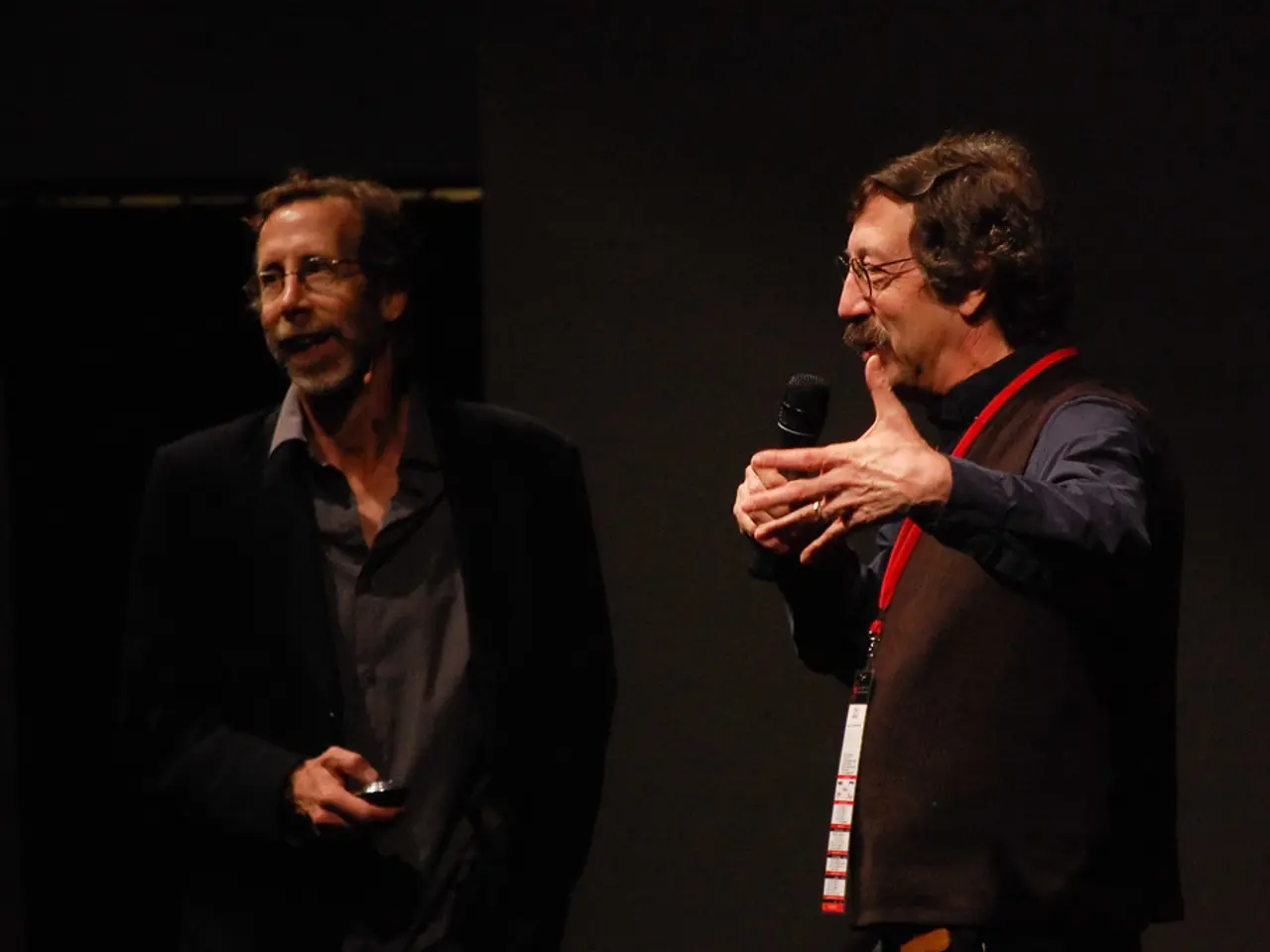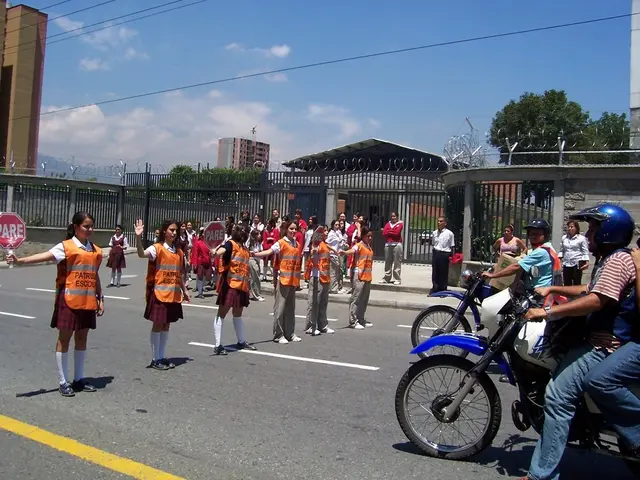Bollywood Film 'Param Sundari' Sparks Controversy: 5 Instances of Stereotyping South India in Movies
In the world of Hindi cinema, the portrayal of South India has often been reduced to overblown quirks, as seen in the 2013 film 'Chennai Express' and numerous other productions. This persistent stereotyping stems from Bollywood's long-standing tendency to simplify South Indian cultures, often lacking authentic representation.
One of the most common visual clichés is the depiction of South Indian women wearing jasmine flowers in their hair daily and performing traditional dances like Mohiniyattam, regardless of the story context or character background. Characters also speak Hindi with exaggerated South Indian accents, often mixing broken Hindi and English, which caricatures the linguistic identity of various South Indian communities.
Inauthentic names and identities are another issue, with characters having stereotypical Malayalam or Tamil names that feel outdated or unrealistic. Bollywood sometimes also portrays South Indian cuisine or habits inaccurately, as seen in 'Ra.One' where Tamil characters are shown eating curd with noodles, a dish that doesn't exist in real-life South Indian food culture.
Casting North Indian actors in South Indian roles without proper cultural grounding also contributes to shallow portrayals and audience frustration. Films like 'Param Sundari' (2025), 'The Kerala Story' (2023), 'Chennai Express', 'Ra.One', and 'Meenakshi Sundareshwar' have faced criticism for these reasons.
The 'Lungi Dance' track in 'Chennai Express' reinforced a singular, flattened idea of South Indian identity, while both 'Agneepath' and 'Ra.One' reinforced stereotypes of South Indians as comic relief or accent-heavy geeks. In 'Meenakshi Sundareshwar', the characters converse almost entirely in Hindi, despite being Tamil, and the diction and accents felt 'Bollywoodised', stripped of authenticity.
The trailer of 'Param Sundari', starring Janhvi Kapoor and Sidharth Malhotra, has sparked online backlash for stereotypical portrayals, with a return to bright-coloured lungis and jasmine-in-the-hair clichés. The song 'Yentamma' from the film 'Kisi Ka Bhai Kisi Ki Jaan' (2023) is another case study in cultural caricature, featuring Salman Khan, Ram Charan, and Venkatesh in bright dhotis gyrating to a tune.
Netflix's 'Meenakshi Sundareshwar' (2021) attempted to bring a Tamil couple into mainstream Bollywood but ended up alienating the South Indian audience. The song "naachenge uthaa karke lungi" in the 'Yentamma' song sparked outrage, as a lungi is considered casual wear, not a dance prop.
Several creators have shared their own takes and expressed frustration about the stereotyping in Hindi cinema. Content creator Steffi, who runs the Instagram handle @stuffwithsteffi, criticized the portrayal of the main character in the trailer of 'Param Sundari'. Deepika Padukone's character Meenamma in 'Chennai Express' spoke in an exaggerated hybrid accent, more Malayali than Tamil, often for comic effect.
Despite these issues, increased awareness driven by social media, audience exposure to genuine South Indian cinema (like KGF, Pushpa, and critically acclaimed Malayalam and Tamil films), and vocal criticism of poor representation are pressuring Bollywood to improve. The industry's historic reliance on simplistic visual shorthand for diverse cultures, insufficient engagement with South Indian communities, and past patterns of privileging star power over cultural authenticity are being challenged.
In summary, the stereotyping continues due to entrenched cinematic conventions and casting practices, but evolving audience expectations and regional cinema’s rising influence are prompting calls for more thoughtful, authentic representation of South Indian cultures in Hindi cinema.
Read also:
- Today's most impactful photographic moments
- Support for Eric Adams in The Post's Letters to the Editor on August 13, 2025
- Roosting Shark and Rambunctious Red Squirrels: Unconventional House Rental in Yorkshire Involving Aquatic Marvel, Squirrely Mayhem, and Mystical Planning Regulations
- Legal Dispute Dismissed with Humor: Supreme Court Laughs off Another Civil Matter Mislabeled as Criminal Prosecution








